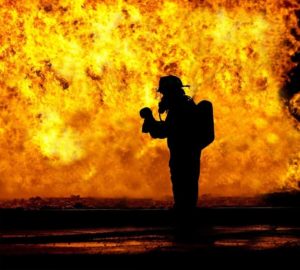The Strong Defense
You Deserve
Don’t Get Burned By Florida’s Arson Laws!

Just as in every other state, Florida law prohibits setting fire to the property of another without their permission. Though it is a simple concept, the laws surrounding arson in Florida are not as simple as you might believe. Following is a discussion of Florida arson laws and what they mean to you if you are charged with arson in Florida.
Origins
The term “arson” comes to us from the Law French word arsoun, ultimately descending from the Latin verb ardere, which means “to burn.”
In English common law the crime of arson consisted of four elements:
- malicious
- burning
- of the dwelling
- of another
Maliciousness in this context meant an action that created a great risk of burning. “Burning” needed not to result in total destruction, as charring or any damage due to heat was enough to satisfy this element. A dwelling was a building that was being lived in at the time of the act, as the law was intended to protect people’s homes. Outbuildings counted as dwellings, but a vacant house did not. Finally, English law generally allowed an individual to destroy his own property however and whenever he wished, even to collect insurance.
Current Florida Arson Statutes
Today in Florida the crime of arson is defined somewhat differently. In Florida, arson is broadly the purposeful damage of a structure with fire or explosives. Florida laws recognize two degrees of arson, namely first degree arson and second degree arson.
First Degree Arson
Florida law specifies first degree arson as willfully and unlawfully using fire or explosives to damage certain structures. Damage to those structures while committing another felony also qualifies as first degree arson.
The structures protected by the statute are
- Any dwelling,
- any structure where people are normally present, or
- any other structure the defendant knows or reasonably should know is occupied.
First degree arson is a felony in the first degree in Florida, which can be punished by a prison term of between one and 30 years and a fine of up to $10,000. Injury or death to a person usually leads to a harsher sentence, and other serious charges generally go along with a first degree arson charge.
Second Degree Arson
In Florida a second degree arson is willfully and unlawfully using fire or explosives to damage structures not specified by under the statute for first degree arson. A second degree arson is a felony in the second degree, which can lead to a prison sentence of between one and 15 years and a fine of up to $10,000. Again, an injury or death during the commission of this degree of arson is also likely to be punished with a harsher penalty as well as leading to other criminal charges.
Conclusion
Arson is a quite serious crime in Florida, and, due to the fact that much of the evidence is destroyed in a typical case of arson, it can be a difficult crime to investigate and prosecute. Despite investigators’ best intentions, significant mistakes can and are made in the course of an investigation. That’s why it is critical to retain an experienced attorney if you are facing a charge of arson in Florida.


